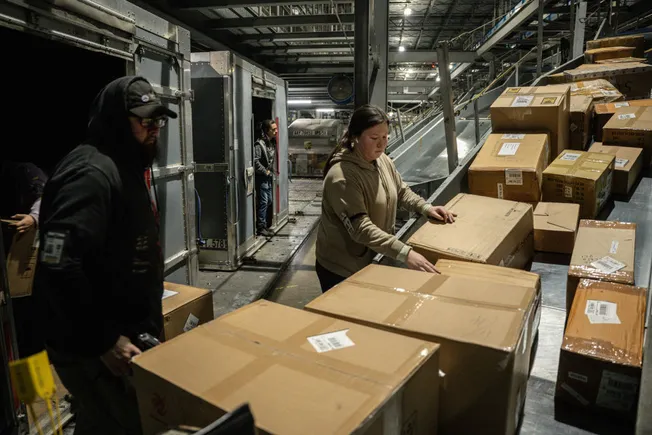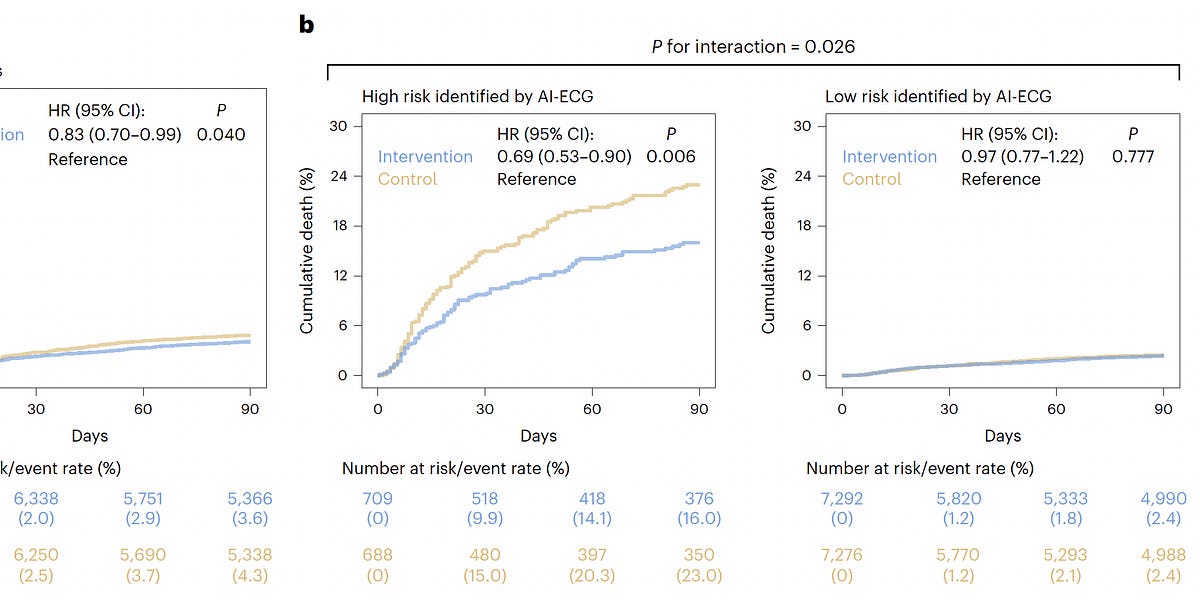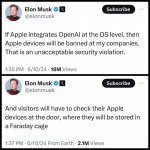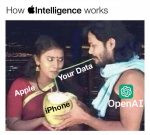So far, the real difference in 'AI' from the 60s to today is processing speed and online storage.That's like comparing automobiles in the 1920's to automobiles in the 2020's.
Is Ai coming for your job? (also, updated Ai development)
- Thread starter crimsonaudio
- Start date
I don't even know what to say.So far, the real difference in 'AI' from the 60s to today is processing speed and online storage.
It certainly seems as if you've dug your heels in on this one, despite the fact that everyone I know in tech is worried, surprised (or both) by the enormous increase in ability.
Either you've got a 50k' view very few others do or you've got blinders on.
My point is that real AI is all about the software. Todays AI is just built on brute force computing and massive online storage using software that is not all that different from the 60s. A good example was IBM's Watson that took on and crushed Jeopardy champions. Just a lot of very fast lookups and retreiveals. In the end, I guess that so far, 'AI' is all in the semantics. Call it what you want but its mostly marketing so far. If you would like a pop culture of what I consider AI, just look at HAL. We are nowhere near that and probably will never obtain that with digital computing. Quantam computing may be the next step.I don't even know what to say.
It certainly seems as if you've dug your heels in on this one, despite the fact that everyone I know in tech is worried, surprised (or both) by the enormous increase in ability.
Either you've got a 50k' view very few others do or you've got blinders on.
I don't know how deeply you've looked into what's happening in machine learning, but real Ai (like HAL) is likely a lot closer to reality than you might think. There's already some question as to whether some of these software systems are sentient.If you would like a pop culture of what I consider AI, just look at HAL. We are nowhere near that and probably will never obtain that with digital computing. Quantam computing may be the next step.
Nicely done, Tennessee.

 abcnews.go.com
abcnews.go.com

Tennessee just became the first state to protect musicians and other artists against AI
Tennessee Gov. Bill Lee has signed off on legislation designed to protect songwriters, performers and other music industry professionals against the potential dangers of artificial intelligence
It was your I may live in the dumbest state comment that prompted the legislature to finally do something everyone agrees with. /sNicely done, Tennessee.

Tennessee just became the first state to protect musicians and other artists against AI
Tennessee Gov. Bill Lee has signed off on legislation designed to protect songwriters, performers and other music industry professionals against the potential dangers of artificial intelligenceabcnews.go.com
BYW, I tried Belltower Coffee. Really good food and I loved the atmosphere. Big thank you!
Can we harness the power of artificial intelligence to solve the world’s most challenging problems without creating an uncontrollable force that ultimately destroys us? ChatGPT and other new A.I. tools can now answer complex questions, write essays, and generate realistic-looking images in a matter of seconds. They can even pass a lawyer’s bar exam. Should we celebrate? Or worry? Or both? Correspondent Miles O’Brien investigates how researchers are trying to transform the world using A.I., hunting for big solutions in fields from medicine to climate change.
Not totally AI, but it will likely be incorporated at the upper levels of decision-making before long.
An example of the effect on workers and the reason: projected 11% profit increase by 2026.

 www.supplychaindive.com
www.supplychaindive.com
An example of the effect on workers and the reason: projected 11% profit increase by 2026.

UPS plans to close around 200 US facilities, shift volume to automated hubs
The company is consolidating locations as part of its "Network of the Future" initiative, which aims to reduce its labor needs and save $3 billion by 2028.
Not totally AI, but it will likely be incorporated at the upper levels of decision-making before long.
An example of the effect on workers and the reason: projected 11% profit increase by 2026.

UPS plans to close around 200 US facilities, shift volume to automated hubs
The company is consolidating locations as part of its "Network of the Future" initiative, which aims to reduce its labor needs and save $3 billion by 2028.www.supplychaindive.com

Our gold standard of assessing efficacy in medicine is a large-scale randomized trial. Last week we reviewed all 88 published randomized medical A.I. trials. Most were targeting intermediate endpoints, such as detection of a colon polyp or an abnormal mammogram. None were focused on reducing mortality as the primary endpoint.
Today that changed. In a paper published at Nature Medicine, nearly 16,000 patients at 2 hospitals in Taiwan were randomly assigned to their physician getting an AI alert of their patient’s electrocardiogram compared to conventional care (single-blind design), with the primary endpoint of all-cause mortality at 90 days.
The main results are summarized below. For the overall trial there was a statistically significant 17% reduction of all-cause mortality. The pre-specified high-risk ECG group was where almost all the benefit (note significant interaction term, P=0.026) was seen: a 31% reduction of deaths, and an absolute 7 per 100 lives saved. That’s remarkable and as good or better than our most effective medical treatments (e.g. statins for secondary prevention).
Exactly--"AI" is basically computers leveraging massive amounts of data. They can do a lot of work, but still can't replace humans (my new job is with cybersecurity AI). We're still nowhere near having a system pass the Turing test.This is nothing new. What we now call AI has been around in some form or another since the 60s, computer driven automation. The programs are just getting more sophisticated. As far as I know, computers still dont think for themselves yet. They still follow a set of instructions written by humans. When true AI hits, watch out.

Elon Musk’s xAI to build multi-billion-dollar supercomputer project in Memphis
xAI will build the world’s largest supercomputer, according to President and CEO of Greater Memphis Chamber Ted Townsend, who made the announcement during a press conference Wednesday.
Think they pass a bill if they weren’t literally within walking distance of Music Row?It was your I may live in the dumbest state comment that prompted the legislature to finally do something everyone agrees with. /s
BYW, I tried Belltower Coffee. Really good food and I loved the atmosphere. Big thank you!
I can manage with a flip phone and a Rand McNally map.I'm hoping someone will develop a smart phone that eschews OpenAI - I've had an iPhone since the day they released in 2007 and am pretty deeply embedded in that environment but don't really want everything I do being shared with OpenAI.
View attachment 42938
Latest threads
-
-
-
-
-
RollTide.com Nate Oats, Alabama hires Portland Trailblazers assistant Chris Fleming...
- Started by oskie
- Replies: 0
-
Any ideas on American based AT&T support
- Started by AlistarWills
- Replies: 2








